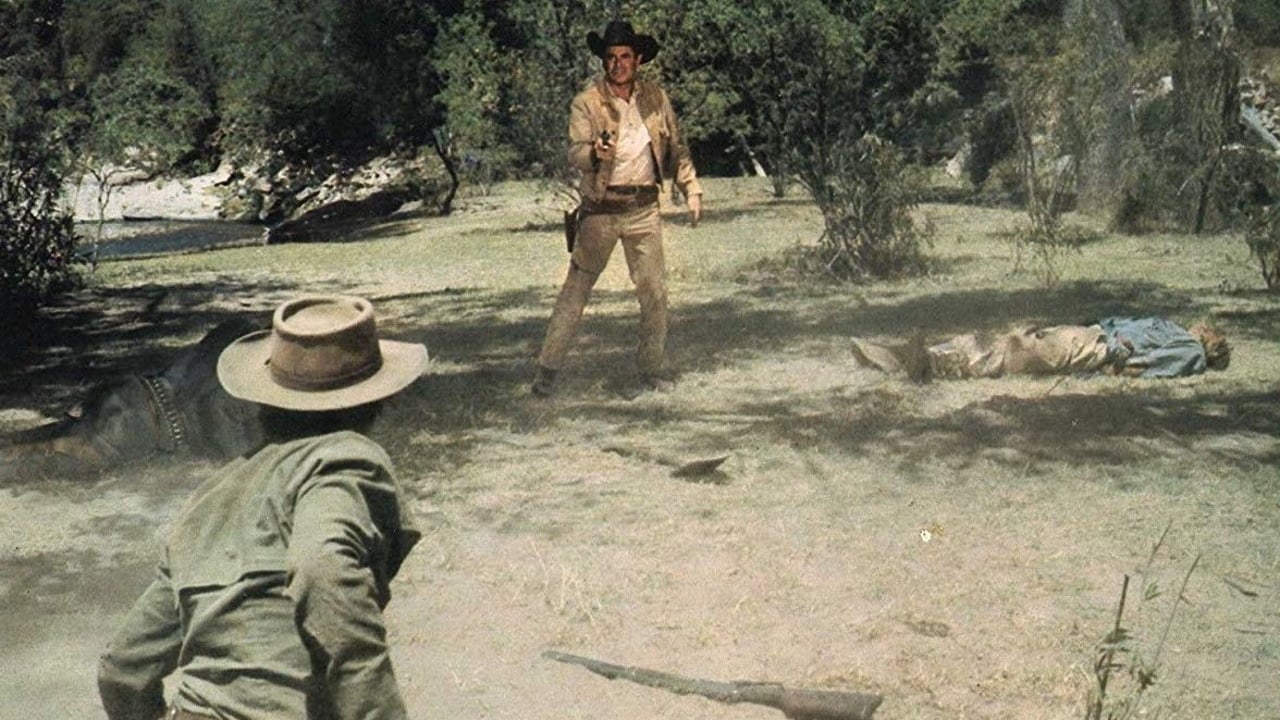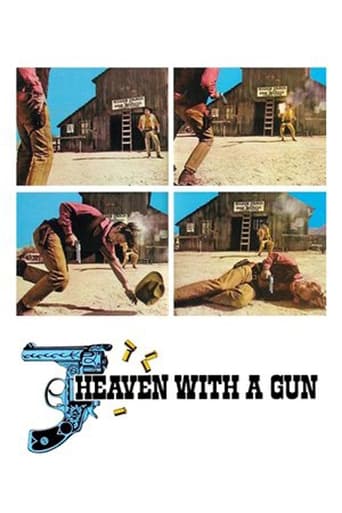

In many ways, this movie is mediocre and formulaic. There is a conflict between cattlemen and sheepherders. As usual, the sheepherders are good and the cattlemen are bad. Enter Jim Killian (Glenn Ford), the gunfighter who wants to hang up his gun and become a pastor, but not before he uses his gun one last one last time. Finally, there are some whores with a heart of gold, headed by Madge (Carolyn Jones).At the same time, the formula has been modified to suit the late 1960s. To begin with, there are a couple of Native Americans that are also sheepherders, consisting of a father and daughter. The father is hanged by a couple of the cattlemen, one of which is Coke (David Carradine), leaving Leloopa (Barbara Hershey) orphaned. When Killian walks into the small house he just bought, he finds Leloopa inside, cooking some baby rattlesnake. Because Killian cut her father down and buried him, she says that she now belongs to Killian, otherwise Hopi law says her father's soul will wander forever. Killian is forced to relent. The fact that they will be living together in a one-room house creates a little taboo tension: They are not married, she is a minor, they are of different races, and we are not sure whether she thinks of herself as a daughter to Killian or as his wife, giving us a tinge of incest. However, Killian leaves at night to sleep somewhere else, presumably at the hotel.Leloopa mentions that her mother was white, a captive whom her father married. In the old days, her mother would have been raped, but movies were trying to portray Native Americans in a more favorable light by this time. Because of this trend of treating Native Americans in the movies in this way, it shocks us a little when Killian tells her she is going to have to take a bath, and she has no idea what a bath is. Leloopa says it was her mother who taught her English, but her mother apparently didn't bother to teach Leloopa about bathing, so I guess her mother went completely native. But why, we ask ourselves, would a movie made as late as 1969 suggest that Hopi Indians are a bunch of dirty, smelly savages?The answer is that the movie wants to titillate us some more. You see, when Barbara Hershey is in a movie, it is usually just a matter of time before she gets naked. In fact, when Killian tells Leloopa that in order to bathe, you first have to take your clothes off, we are not surprised when she starts undressing right in front of him. He stops her, however, and leaves the house so she can have some privacy.Later in the movie she manages to get raped. Coke starts making advances to her in the street. Instead of remaining in the street where there are plenty of people around, she gets the bright idea of running into a barn, which means that Coke can rape her in private. We figure, "All right, this is where we get to see Barbara Hershey naked." But she is only partially undraped as she leaves the barn.Killian beats up Coke. Finally, that night, when he gets home, Barbara Hershey is sitting outside completely naked, although we only get to see enough of her body to give the movie an M rating ("M" for mature, a designation eventually replaced by PG). She says she knows he is trying to find her another place to stay. After he puts her to bed, she asks if he will stay with her, which was probably the real reason she got naked and not all that Hopi nonsense she was spouting. But he leaves.After Killian kills Mace (J.D. Cannon), the gunslinger that had been hired by chief cattleman Asa Beck (John Anderson), Madge convinces him that if he really wants to hang up his guns and become a pastor, he must stop killing. That makes sense. But what to do about all those evil cattlemen threatening to wipe out all the sheepherders? Here we see another influence of the 1960s. Killian gathers together all the townspeople, including the wives and children of the cattlemen, and they all go to the lake where there was to be a showdown, placing themselves in what would have been the middle of a battle between cattlemen and sheepherders. It is suggestive of the civil disobedience, civil rights marches, and nonviolent resistance so characteristic of the 1950s and 1960s.Finally, it becomes clear that Killian is going to allow Leloopa to stay with him, presumably as husband and wife, though that is not explicitly stated. This too is a change from the old days. Normally, Leloopa would have been off limits for Killian, not so much because they were of different races, but because she had been raped. Miscegenation was something of a taboo in the old movies, but it did happen from time to time, as in "Broken Arrow" (1950). But a raped woman was damaged goods, and the movies usually figured out some way to keep the protagonist from marrying her, as in "Man of the West" (1958), assuming she was even allowed to be alive by the end of the movie. The idea of a raped woman marrying a man and living happily ever after was just too offensive in the old days. Maybe it still is. But this movie doesn't see it as a problem.
... View MoreKnown gunfighter Glenn Ford arrives in the town of Vinegarroon a name made famous as the seat of Judge Roy Bean's court. But here the local power is the local Ponderosa owner John Anderson and his punk of a son David Carradine. Some sheepman have been intruding on government range and Anderson isn't having any.When Ford comes to town he takes a lease on an old barn and then reveals he's now a minister as well, but ready to back his sermons with gunfire if necessary. He tries to bring peace to the cattlemen and the sheepmen. His main allies though are the women of the locale.Two women prominently figure in this film. One is Carolyn Jones who runs the local watering hole. In keeping with the times the film is quite specific about what the women are there for. Jones and Ford have history. Looking to make some history with Ford is Barbara Hershey who is a young Indian girl he rescues. Also in keeping with the abolition of the Code is one brutal rape scene involving her and her real life husband David Carradine.Despite the sexual frankness Heaven With A Gun has an old fashioned look to it. It's not in the same league as some of Ford's earlier westerns like 3:10 To Yuma, Jubal, or The Violent Men. But his fans should be pleased.The climax is borrowed some from Destry Rides Again and some from Duel In The Sun.
... View MoreSlightly better than formulaic script never really explores the moral tension inherent in the central character: a gunslingin' preacher played by Glen Ford with his usual professionalism. The moral/spiritual dilemma is pretty well ignored until Carolyn Jones directly confronts Ford and compels him to make a choice: gunslinger or preacher.The acting is always good. I like Glen Ford and Carolyn Jones. This is actually one of David Carradine's better performances. He is a very good sadistic old-west punk. Barbara Hershey is easy to look at. I guess she turns in a fair performance as a half-breed speaking stereotypical pidgin English.The most interesting scene is the gunfight in the saloon between a nasty hired gun and Ford while they are SEATED opposite one another at a poker table. The movie earned more originality points for that twist than for the paradoxical plot revolving around the gunslingin' preacher character.
... View MorePassable western looks like movie-backlot goods, but does feature a very fine performance by young Barbara Hershey (in only her second picture), and also by Hershey's future-squeeze David Carradine, in this melodramatic story of a new preacher in a tumbleweed town who is eventually forced into taking on the bad guys. Glenn Ford has the lead and he's solid as usual (Ford never really disappoints, but rarely did he try anything new; even as the heavy in "3:10 To Yuma" he was in fine form and yet unsurprising). Admirers of Hershey should take a look, she's really terrific. ** from ****
... View More